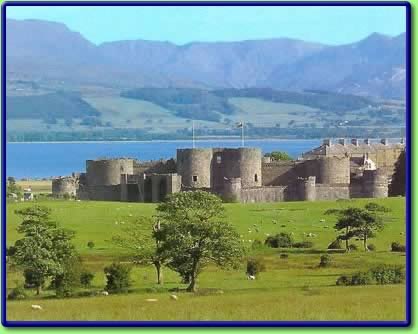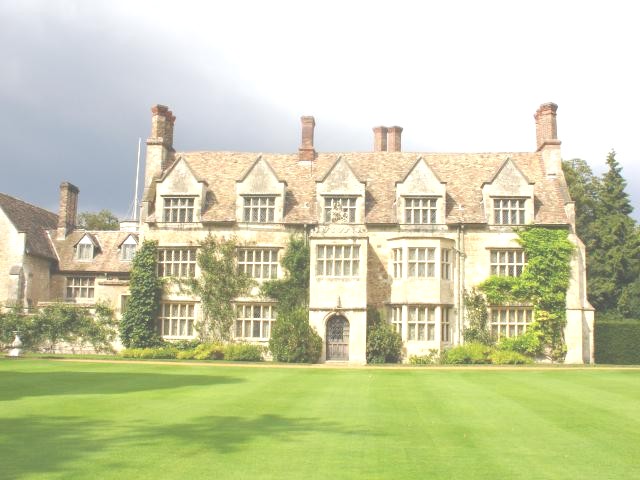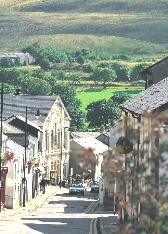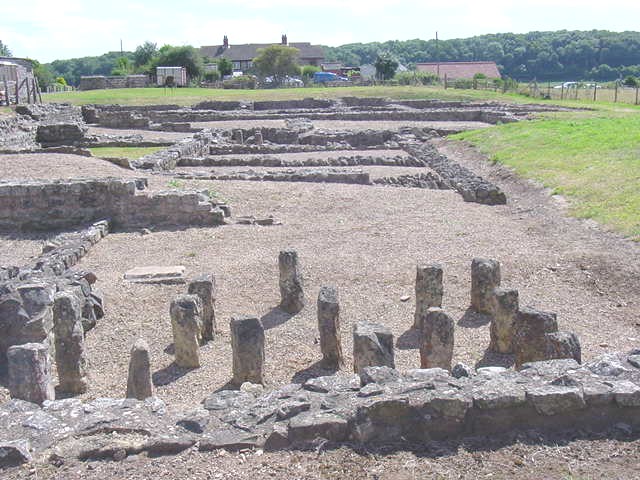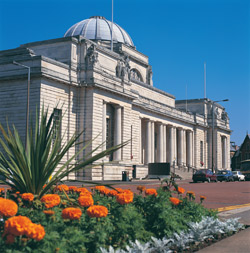The Theosophical Society,
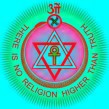
The Writings of Annie Besant
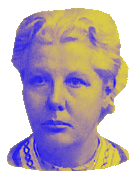
Annie
Besant
(1847
-1933)
Materialism Undermined by Science
A Lecture delivered in 1895 in Calcutta
It
is now fourteen months, my Brothers, since last I stood amongst you when I
came
to
acquaintance
of, as I may say, the
that
there may be found in her laws and in her religious thoughts. Leaving your
capita
city I travelled northwards and westwards and visited several parts of
India,
those of the North and North-west, and afterwards the Punjab. Thence I
turned
towards Bombay visiting several cities on the way, and then westwards
back
to Europe, there spending some months; and then southwards again to far
Australia
where a new race is growing up, where a new nation, as it were, is
being
born; and from that far-off distant Isle, near to the South Pole, come
back
once more to the Motherland amongst you again to bring you once more a
message
of the Eternal Verities of Spirituality, to speak amongst you once again
the
Eternal Truths which from ancient times have come down.
For
whether it be in India or Europe or Australia there is one mighty Spiritual
Truth to be proclaimed, the one thing needed for the soul of man, and that is
the knowledge of its wanderings after the Spirit, the knowledge of the Will of
the Supreme. And whether in the lands of the West and South or whether under
the fire of the tropical sun man is still demanding spiritual knowledge, is
still struggling after spiritual life, still hoping for the same spiritual
unity. To whatever
land
we may go, through whatever country we may pass, we have still Humanity as
"the great orphan" crying for the Spirit, striving after Light, after
spiritual
unity,
striving to find in the many esoteric religions the one Spiritual Truth
which
alone can satisfy the soul. And if I come back to you here and take up
again
the message which in this land has clothed itself in the ancient forms of
Hindu
religion from ancient times, it is not because India is the only land
where
human souls need it, it is not because India is the only country where the
spirit
of man is crying out for the Light, but it is because in this land there
is
more hope of a spiritual revival, and if a spiritual revival here there
maybe,
then it will pour outwards to all the four corners of the world. For
spirituality
is more easily awakened in India than elsewhere.
The
spiritual heart here is only sleeping, whereas in some other lands it has
scarcely yet come to the birth; for you must remember that in this land is the
birthplace of every religion, and that from India, outwards, religions have
made their way.
Therefore
it is that the soul of our mother India is so important for the future
of
the world, and therefore it is that the Materialism of India is so fatal. For
it
is here alone that lies the hope that man has of looking for spiritual life:
for,
in truth, unless the life of the Spirit come in this land, by reviving
here,
then the hope is baseless that spirituality is to spread over the world.
And
I may say to you, ere glancing for a moment over the subjects with which I
am
to deal, upon this visit, that in travelling through the length and breadth
of
India, from South to North, from West to East, I have found this of the
people:
that in the South of India you have more pronounced and outward
orthodoxy,
you have the more defined observances of ancient ceremonies and
ancient
rites, that on the surface of the people, as it were, you see more of
the
outer signs of Hinduism and more exactitude in the discharge of the various
religious
duties.
That
is a characteristic of the Southern people; that is a marked attribute amongst
their various communities. Far away in the Punjab, there you may find certain
traits of manhood, of strength, of courage, which if they shall rise to the
Spirit surely would give us great help, would give us an enormous
reinforcement; for that race would move with force and energy, only perhaps
slow to take action. In Bengal there is, as I have noticed, much outward sign
of western influence, much of the surface of the people taking up western
thought and western customs; but in the heart of Bengal there still remain,
more than elsewhere, gleams of the ancient spirituality, so that, just as in
spiritual matters India is the heart of the world, so is Bengal the heart of
India and may save India as a whole for all Humanity. And therefore in speaking
to you in the ten days which lie before me, I have chosen subject after subject
which should all point to the one object--and that is the revival of
spirituality and the spread of the ancient Hindu religion in the hearts of its
children, who are bound to it by ancestral ties.
If
you cannot revive spiritually in India through Hinduism, if you cannot thus
reach India, then there is nothing else you can hope to do; and I say that here
alone is the one hope of reviving this ancient potentiality. Here is the one
certain hope which will bind all the hearts of the Indians into one and
therefore we must look to the revival of the ancient faith which however it has
fallen, however much it has been corrupted in modern times, however much it may
have lost spiritual
life,
is still the most ancient religion the world has ever known, sublime in
its
Philosophy and magnificent in its Literature. So that if this shall again
become
a living thing, India shall herself live; and with the revival all the
sleeping
truths of other religions shall look again towards their Indian mother,
and
make her once again the spiritual teacher of the world.
And
now I am going to speak to you upon materialism; I am not going to deal now
with a definite religious question, with definite religious teachings, with
mighty
doctrines in Philosophy, in Spiritual knowledge, which later on I shall
hope
to unfold before you. There is one thing that is eating the heart out of
India,
and that is modern materialism. There is one thing which is poisoning the
mind
of India, and that is the kind of science which is the teacher of
materialism
and works against Spirituality in the mind. How should I be able to
tell
you of the moral regeneration of India unless first I can strike at that
which
is piercing her heart and sucking out her very lifeblood. So--as I have
been
trained in the science of the West, trained in the knowledge of the
physical
Universe which is so much used to make men believe that nothing but the
physical remains--I take for my first subject this undermining of materialism
by science, and I attack it with the weapons that were once used to build it
up.
Now
it is fair to ask in the beginning why it is that religion and science
should
appear to be in opposition. Why is it that science should seem to play
into
the hands of materialism? Why is it that as science has advanced, Religion
has
found itself pressed backward and backward so that men begin to make excuses
for spiritual truths and talk apologetically of religion? Why is it that men
advocating
spiritual truth are afraid of being called superstitious? Let us see
whether
there is no explanation why science at the outset should help
materialism
and the reason also why, as science has advanced, it begins to
undermine
the same materialism and to destroy that which it has helped to
establish?
You
may remember Bacon, a great philosopher of the 17th Century,
speaking
on this very point used the following phrase:--that a little learning
inclineth
men to atheism, but deeper knowledge brings them back to religion. It
is
a true statement. Look for a moment at religion and science, and you will see
why
that should be the fact, and why one should be against the other. A man who is
a spiritual man--a religious teacher--regards the universe from the
standpoint
of the Spirit from which everything is seen as coming from the One.
When
he stands, as it were, in the centre, and he looks from the centre to the
circumference,
he stands at the point whence the force proceeds, and he judges
of
the force from that point of radiation and he sees it as one in its
multitudinous
workings, and knows the force is One; he sees it in its many
divergencies,
and he recognises it as one and the same thing throughout.
Standing
in the centre, in the Spirit, and looking outwards to the universe, he
judges
everything from the standpoint of the Divine Unity and sees every
separate
phenomenon, not as separate from the One but as the external expression of the
one and the only Life. But science looks at the thing from the surface.
It
goes to the circumference of the universe and it sees a multiplicity of
phenomena.
It studies these separated things and studies them one by one. It
takes
up a manifestation and judges it; it judges it apart; it looks at the
many,
not at the One; it looks at the diversity, not at the Unity, and sees
everything
from outside and not from within: it sees the external difference and
the
superficial portion while it sees not the One from which every thing
proceeds.
You may imagine, to take a figure, that you stand where there is a
white
light--say an electric light sending out rays from a single point; imagine
three
tubes going out from this centre and rays of light travelling down each
and
passing through a glass of a different colour set in each tube; if you look
from
the point where the electric light is you would see the white light
striking
outward as a light which was one; but if you went to the far end of the
tubes
you would there see that the light was of three different colours, as red
and
blue and yellow, appearing as if the light was of three kinds not one,
because
in their separation unity would be entirely lost. See how that works in
the
Universe. You have your three great gunas or attributes through which, as it
were,
the light comes as through three different glasses, and the one Divine
Spirit
comes down into manifestation; and it is not only the three gunas that
you
have but these intermingling one with another, and breaking in a thousand
different
channels.
Then
how great must be the differences at the circumference! But how it would lessen
the difficulty if men could only see the processes, and know how those results
were brought about; if they went further, and if travelling onward they found
the divergences greatly diminish, see then how thus going forward, they may
come, as it were, near to the one, and reconciliation between Religion and
Science may arise. Religion shows everything from the point of the Spirit and
proclaims the unity. Scientists show everything from the point of view of
diversity and proclaim that, as if in opposition, to the world. But Plato says
of the man who can discern the one in the many, that that man he
regards
as a God; the work of the true spiritual teacher is to show the one
under
the multiplicity, to make man see the fact of unity underneath diversity,
and
as science goes forward she also may be used once more to help us, because in
passing out of the physical into the super-physical and mental, she is going
nearer to Unity.
And
now let me turn to my science and give you the proofs of this. First let me
refer
you, though I need not dwell upon the point, to the remarkable position
taken
by Huxley in his latest writings, which were new when I was with you last
year,
but which remain unchanged, uncontradicted, as the latest proclamation of
the
great teacher of Agnosticism as the latest proclamation of its exponent in
European
Science. Two great points he made, or rather three. First--and I only
mention
these briefly, because I dealt with them last year--first he pointed out
that
the evolution of virtue in man was directly in conflict with the evolution
of
the physical world: that when man evolved compassion, and tenderness and
gentleness
and self-sacrifice, when he learnt to use his strength for service
instead
of self-assertion--he was flying right in the face of the laws by which
progress
had been made in the physical Universe. He was following the law of
self-sacrifice
as against the law of self-assertion. Why is it that man can thus
set
himself against the cosmos? It is because he is approaching the spiritual
region;
it is because he has begun to develop the essential nature of the
divinity
itself: for the life of God is in giving and not in taking: the life of
God
is in pouring out and not in grasping; and as man feels the life of the
Spirit
in him against the life of the animal, he grows Divinely strong. And when
you
find men of science admitting that the evolution of virtue is by the law of
self-sacrifice,
you may perhaps begin to admit the possibilities of what is said
in
some of the sacred scriptures, that Creation always begins with Sacrifice.
You
may remember that--I am quoting to you, leaving out only the first great
word--"the
dawn is the head of the sacrificial horse, of the horse which arose
out
of the water, the water which the commentary says represents Paramatma."
All
creation is Sacrifice. The source or dawn is the sacrifice, and everywhere the
soul
that would develop must live a life of sacrifice, because as the Upanishad
says
to you, a sacrifice of the Godhead was made in order that the world might
exist.
Sacrifice is the first condition in order that the Universe may be, and
that
man might be evolved to be one with Himself.
The
second point made by Huxley seems taken from the sacred books of India; man can
set himself against the cosmos because in man there is an intelligence which is
the same as the Intelligence which pervades the Universe. That is the lesson of
the Shastras. The intelligence of man is one with the Intelligence which
pervades
the whole. Man can set himself against the external world, for "Thou
art
Brahman," and when that is realised by man all else becomes subject to his
will.
And the third belief that Huxley has thought fit to declare is that the
working
of consciousness in the higher cannot be understood by the lower.
There
is nothing against the analogy of nature in supposing that there are grades of
intelligence rising above men. There may be other intelligences higher and
higher
and higher, reaching further and further far above the noblest
intelligence
of man. And there is nothing, he says, to make it impossible that
there
should be in the universe, above these grades--a Single Intelligence. But
what
is that? Nothing but what has been proclaimed in the Scriptures, Isvar, the
Lord,
the Logos, the Word of which all things were made. So that you may see
how,
on these lines, science in the mouth of one of its greatest teachers is
undermining
materialism.
Now
let me go a little further. Let us see, not from the mouth of the teacher,
but
from the facts themselves, how changes are going on. Physical facts are
being
discovered which show that underneath the material mind must be at work.
Underlying
the physical, intelligence must be active; .underlying a particle of
what
was once called dead matter, a metal, a crystal or a stone, there is a
moving
life--there is a ruling intelligence. First let me say--and the force of
the
argument may excuse repetition of it--that if you take a crystal, you find
it
grow along geometrical lines, with absolute definiteness of angles, as though
a
compass were used to trace it, and these lines make geometrical figures. So
that
Plato's phrase "God geometrises" is seen to be true even in the
animal
kingdom.
Then
again when from the mineral you go to the vegetable where life is
more
active, where there seems to be less regularity, where there seems at first
less
of order, you will find in reality that even in its multiplicity there is
order,
that in the vegetable as well there is the same immutable law. If you
take
the branch of a tree, you may study the way the leaves are set, and you
will
find every leaf in a definite place, both as regards the leaves lower down
and
higher up. So that the leaves of the tree are developed on a geometrical
plan.
More than that. Since I last stood here to speak to you, a series of
investigations
has been made into the way that metals behave under exercise.
Every
engineer and other employer of machinery has noticed that when metal is
used,
where there are bars and wheels and other parts making up the machine,
that
with the use of the machine, what is called "fatigue" occurs. The
metal
gets
tired. But what does this mean? It has been observed that, after a certain
amount
of exercise, the machine will not work well. It works like a tired horse
or
a tired man; it stumbles and cannot carry on the work. What shall be done?
Let
it rest.
It
does not want improvement, as every part is perfect; it does not
want
repair--there is nothing in it which is broken; it only needs to rest; and
if
it is allowed to rest it recovers from its fatigue, without a single thing
being
done to it, and it goes on to work as well as ever, showing that rest has
given
back its energies and that, just as a tired animal reposes, so also the
"dead"
metal may repose. This shows that even in a metal there is life--for a
dead
thing cannot get tired, a dead thing cannot lose its energies, a dead thing
cannot
be restored by rest. These are all signs of a living body; where there is
fatigue
and recovery of energies by rest, there is life existing, however hidden
it
may be under the form which conceals it from our eyes.
And
now for a moment turn to Chemistry. I took first that point of the metals
because it is a point which on thinking over you will find exceedingly plain
and intelligible. But turn now to Chemistry. One great argument which
materialists used to take from Chemistry was this: that as advances were made
in what was called organic Chemistry, or the Chemistry of living things, it was
shown that the separation made between organic and inorganic Chemistry was
artificial. As a matter of fact, they said there was no fundamental difference
and both organic and inorganic Chemistry were on the same lines; therefore they
thought that the
introduction
of life as a thing separate and apart from chemical agencies must
be
given up. That argument was very much strengthened by chemists in the
laboratory
making certain things which before had been found only as products of
vegetables and animals and which had been regarded therefore as the outcome of
living energy.
These
things were said to be things which could only be produced by living
organisations. During the present century, however, a large number of
these
bodies have been made by chemists, and they have succeeded here in
breaking
down the barriers between the organic and the inorganic; and the result
was
that at once it was said, "you see life is only, after all, the result of
chemical
energy, and not an outcome from the supreme source, but only something in
connection with the chemical energy; you were under a mistake in supposing
those things were always found as products of living things, and therefore
there is not needed to explain them a source of life from which all living
things proceeded. See how the chemist has proved you out of court; see how he
has made that which you said could only come from life." Thus apparently
was one of the arguments knocked down which seemed to prove the life of the
world as coming from the life which was Eternal and Supreme.
But
Chemistry, in the course of these very investigations, going along the lines
called organic, has given us an argument stronger than the one attacked. It
places within our reach arguments far stronger, far more potent than the one
which it destroyed; for it shows that in the organic the atom is not only, as I
told you last year, formed by the action of electrical currents out of primary
matter, but it shows further that the atom here progresses; that the atom in
the animal kingdom is not at all the same as the atom of the vegetable in its
combining power. It shows that the change is not a change of material
attributes, but a change of inner life, of internal differentiations--the atom
changes within itself, as all living things do; for one of the great signs of
life used to be said to be this power of
adaptation
from within.
Take
an atom in the mineral kingdom such as carbon. All its combinations are simple,
all its combinations are one by one. This fourfold atom can join with others in
definite and simple combinations, but when it passes forward, having gone
through the mineral kingdom, then by an inner evolution, it changes its combining
power and unites with itself to form a number of compounds, forming closed
rings, so as to make complicated combinations never found in the mineral
kingdom.
Taking
the old story of evolution as laid down thousands of years ago, not in the
modern but in the ancient forms, we learn that this atom is part of the
Universal life, that it is not dead matter but a living thing, that atoms are
minute lives which go to build up external forms. We are able now to bring
arguments from Chemistry to show that there is atomic evolution in the
universe, that the progress of life which we see around us is no dream of the
ancient Rishis but a reality. The scientists look only at the form and not at
the inner life; but as you study the atom, you realise that this increased
power of combination means evolving life within it. Not only is that seen, but
it is also now admitted that life cannot be regarded as an outcome of chemical
agency. It is admitted that life shows certain specific energies which
differentiate it from electrical and chemical
affinities,
and you may get the ,phenomena of living things among the energies
which
science is unable to trace to their source. Once it was thought that life
might
be explained as the outcome of chemical and electrical agencies, but now
it
is admitted to be something more. Science now admits that although they are
correlated
with the life, they are not the life itself, and although they
accompany
the phenomena they cannot be regarded as their sources. So that from the
chemistry which was the greatest hope of the materialist, we may now obtain
arguments for its undermining.
Pass
from that to electricity and see how here, in the latest discoveries, are
arguments
that may help our works. It is not only that science has proved that
whenever
thought is present, electricity is also present, interesting as that
is,
as showing the close relationship between them; but we are also told that
there
may be a development of an organ in the brain of man which will take
cognizance
of electric vibration directly and not indirectly. Let me show you
what
I mean. You see the light here because the light makes vibrations, and
these
vibrations strike on the organ we call the eye. The eye is so put together
in
its minute parts, that these vibrate in response to the vibrations of the
ether;
so that whenever these vibrations are present, certain particles in the
eye
vibrate in response and give to us the sensation which we call light. Now
these
vibrations are within narrow limits; there are vibrations in the ether
wider
and narrower in wave-length than those which we call light, and to these
our
eyes do not answer. Therefore if they alone are present, we are in darkness;
we
cannot see. So again suppose we had developed the organ which is necessary to
respond to the electric vibration, while we had not the organ of sight.
Then
this room would be dark to us, though filled with the vibrations we now call
light. Then the consciousness could not perceive the light. But if we had
developed
instead of the eye another class of organs which answered to the
electric
vibrations, and suppose a large electric machine were fixed at one end
of
the hall, and a strong electric current sent through the hall, we should be
able
to perceive because the organ in us would vibrate in answer to the electric
current,
and the current would reach our consciousness through this organ. The
consciousness
is helpless without an organ that receives from without, and only
the
body can receive and transfer vibrations to the inner intelligence. That has
been
very clearly pointed out, and to take a striking illustration used by
Professor
Crookes: suppose we had no eyes to see the light, and suppose we had an inner
organ which answered to electricity. This air would be opaque and we could not
see through it, while a silver wire going through the air would be
transparent,
would be like a tube going through a solid mass. Though you would
be
able to perceive along the silver wire, because silver is a good conductor of
electricity,you
would perceive the air as a solid round the silver which would
look
like a hole.
Do
you see how rational the illusory theory can become when you learn a little
more science? Do you see how matter is no longer the thing which it was, a
solid material, but by a change in the organ of consciousness, what is solid
today may be permeable to-morrow? And thus the idea is largely right that
regards matter as an illusion; for what we call matter is only a generalisation
of the impressions received by consciousness by way of the senses. It is the
translation in consciousness of the unknown something which works upon us. In
fact, what we call matter is but a reflection in the consciousness of an aspect
of the Supreme Unknowable Unity, just as the Spirit is the reflection of the
other aspect of the same Unknowable Unity.
Thus
science is bringing us back to this part of the ancient teachings, and if a
materialist comes to you and says that matter cannot pass from matter, just
throw into his mind for him to think over, some of these later facts.
Pass
I from that to another closely allied point--that of thought-transference.
Thought-transference
is now being acknowledged, though for a long time science was very doubtful as
to its acceptance, and if you spoke to a man about it he
most
likely regarded you as a crank, or even called you a fraud, for it was
easier
to call you a fraud than to admit that he was ignorant. There are men for
whom
it is impossible to say "I do not know," but anybody can say
"you are a
fraud."
The ignorant who are not able to understand, people who are most
self-opinionated
nearly always call out "fraud," when confronted with the
unintelligible.
Look now at thought-transference. Thought is a form-producing
force;
when Brahma thought, worlds appeared. In the ancient books it was always taken
to be granted that action is an effect of the mind. But it has been asked
contemptuously of the writers of these books, what did they know about modern
science? What did they know compared to our advancement? For we are supposed to
know everything nearly in this 19th century! Yet, after all, the old writers
have become justified by the facts. The old teachers have been justified by the
later investigations.
And
some of the best of the younger scientists in England--the old ones are too
prejudiced--are ready to take up facts, and they themselves have now performed
the experiments that prove that thought-transference is possible. You have a
man like Professor Lodge saying that his own experiments have convinced him and
that he finds that thought can pass from mind to mind without what is called
any material method. Not only he but the Psychical Research Society, which is
an exceedingly "respectable" body from the public standpoint, have
conducted a number of most careful investigations on thought-transference. The
results of these were published in a book some three months ago by W. Podmore,
a member of the Society. You will find in this book a record of most careful
experiments on the transference of thought from one to another, and the
evidence is now so strong that it is impossible to put it out of court.
Oliver
Lodge speaking two years ago, said he was sure of thought-transference,
but
it was alleged that matter might be moved by the action of the will without
material
contact, and of that he was not yet convinced. But within the last few
months
Mr. Lodge has himself carried on a number of experiments which have
convinced
him, he says, beyond the possibility of doubt, that an article may be
moved
from one place to another without physical contact at all; that bodies can
be
moved or suspended in the air without the means of physical support, and that
he himself has taken part in experiments which have been carefully arranged by
himself and other scientific men and they have proved that it is possible and
it
may
be done over and over again. The experiments carried on included therein the
taking of small articles and without physical contact passing them from one
part of a room to another.
The
conditions under which these things were done were very rigid. They were
carried on in a small island where there were no persons living except the
lighthouse-keeper and his family. It was a very little island, a mere rock. Mr.
Lodge and two or three others got the owner's consent to make their experiments
there. They brought with them what is called a medium who
belonged
to the South of Europe, who could not talk the language of the
inhabitants
of the island, so that she could not communicate even with the
family
on the island, she being an absolute stranger never having been there
before.
They took her into a room with themselves only, with locked door, and
there
they performed the experiments in which these phenomena were produced.
They
kept the reporter outside in the balcony so, that he could not be within
sight
of what was occurring. The reporter was put outside with a closed shutter
between
him and the people in the room. He was to write down what he heard, but he was
not able to see what happened.
Mr.
Lodge said he was himself absolutely convinced; he said he could not as yet
explain it, but he thought it possible there might be a kind of expansion of
vital energies by which a person, under certain conditions, could affect a body
outside his physical reach. Just as one body can touch another by the exercise
of physical energies, so can it draw others towards it. But he is not yet
prepared to say how that energy is exercised. That this was, he knows; how it
was, he has not yet satisfied himself. But if he were to read some of the
ancient books, he could easily find out. He might find that a man does not
consist only of what is called the food-sheath or our physical body, but that
men have other sheaths in which consciousness may work, without the limitations
which are attached to the
physical
body. When it is working within there, it can also exercise its power,
just
as much as it can in the physical body, and may lift an object from one
place
to another by working with a law of nature in which other forces are
concerned.
The sheath used is what the Theosophists speak of as the "astral"
body
which can be utilised for the production of these phenomena, and though it was
said to be a fraud when Madame Blavatsky brought an article from one side of a
room to another, yet nearly four years after her death you have Mr. Lodge going
into the subject, and asserting after a scientifically rigid repetition of
the
facts that the thing could be done, thus justifying a statement as possible
which
had been hastily dismissed as a fraud.
I
might speak of many other cases of these latest investigations, and show you
how
they are undermining the materialistic idea. I may turn to Hypnotism, and
remind
you that last year I remarked that it was becoming a public danger--the
power
of influencing another, the power recognised by science, which one man had of
imposing his thoughts on another. I saw that before long nations would be face
to face with crimes which they would not know how to deal with. I said to you
that unless the exercise of these powers were very carefully guarded, so
that
men who were unworthy should not be allowed to grasp these hidden powers of
nature, there would be great danger to society in making safe particular
classes of crime.
Since
last year that prophecy of mine has proved itself true, and in certain cases
both in France and the United States of America crimes were found to have been
worked by the hypnotiser, and the courts have not been able to deal
with
them, and verdicts of acquittal have been given on the ground that the
criminals
were not responsible for their actions, that being thrown into the
hypnotised
state, they could not justly be called to account by the law for the
crime
which they had committed. So that you have this result justifying the
ancient
practice of the East in withholding dangerous knowledge of occult
forces,
and showing that society in the West is face to face with the peril of
men
who commit crimes but who cannot be held responsible for them, because
committing
them under the influence of those who suggest them.
What
is to be the outcome of these arguments? What is to be the outcome of these
later investigations in Chemistry, electricity, thought-transference,
Hypnotism, the moving of bodies and the like? To what are these new lines of
investigation tending? They tend to show you that the old doctrine is true,
that everything is the outcome of mind, that the Supreme Mind is, as it were,
behind every phenomenon, that matter is regulated in conformity with the
dictates of mind, that it is the truth that thought-forces take for in
particular manifestations,
and
so the Universe is only an expression of the Divine Will. And inasmuch as
the
mind generates thoughts, and inasmuch as the Supreme and human minds are one in
their essence, therefore the mind of man, in its higher manifestations shares in
the powers of Supreme mind, and can control matter, can move matter, can model
matter, shape matter, and make itself visible in the envelope of thought, and
so communicate with other minds without any attempt to speak or hear at all.
So
that you begin to understand that the saying of the Purana as to creation is
not
a dream, but that it is from the Supreme Will that forms emanate and build
the
Universe. And you may understand that this power of the Supreme is more
manifest
in the power of the mind than in the powers of the body, and that true
activity
is shown not in running about from place to place, held in the bonds of
physical
facts, but in quiet thinking, in the use of the imagination and the
will.
Therefore the Yogi sitting apart, with body absolutely still, with eyes
closed,
and mouth not communicating with other men, if he be a Yogi indeed, a
Yogi
in heart not only in dress, he has an inner life, a spiritual life, he may
do
more than the man of action by his thoughts, by his meditations, by the
forces
which are going out from him. On these more than on the work of
politicians
may turn the life of the nation.
Nor
is this work only for the Yogi. Every one of you is sending out thoughts
that,
passing into the astral atmosphere, will take form, and thence affect the
lives
of men and in their totality the nation's future. If only every one of you
would
give one brief quarter of an hour's thought each morning to the future of
India,
and send out earnest wishes for her welfare, hopes for her revival,
aspirations
for her spiritual greatness, believe me you would make a force that
would
raise the nation and would mould her future. Your thoughts would gather
together,
modelling, as it were, an ideal India that should take shape in the
external
world; your prayers would gather together and ascend to the Feet of
Mahadeva,
whence would flow forth a regenerating energy that would manifest
itself
in teachers, in leaders, in guides of the people, who could move the
hearts
of men and unite them into one mighty Unity. Such is your power over the
future,
such the service you may render India; for in thought is the power of
the
Supreme, and it is man's because "Thou art Brahman."
Cardiff Theosophical Archive
The Theosophical Society,
Cardiff Lodge, 206 Newport Road, Cardiff CF24 – 1DL
Helena Petrovna Blavatsky 1831 – 1891
The Founder of Modern Theosophy
Index of Articles by
By
H P Blavatsky
Is the Desire to Live Selfish?
Ancient Magic in Modern Science
Precepts Compiled by H P Blavatsky
Obras Por H P Blavatsky
En Espanol
Articles about the Life of H P Blavatsky
Nature is infinite in space and
time -- boundless and eternal, unfathomable and ineffable. The all-pervading
essence of infinite nature can be called space, consciousness, life, substance,
force, energy, divinity -- all of which are fundamentally one.
2) The finite and the infinite
Nature is a unity in
diversity, one in essence, manifold in form. The infinite whole is composed of
an infinite number of finite wholes -- the relatively stable and autonomous
things (natural systems or artefacts) that we observe around us. Every natural
system is not only a conscious, living, substantial entity, but is
consciousness-life-substance, of a particular range of density and form.
Infinite nature is an abstraction, not an entity; it therefore does not act or
change and has no attributes. The finite, concrete systems of which it is
composed, on the other hand, move and change, act and interact, and possess
attributes. They are composite, inhomogeneous, and ultimately transient.
3)
Vibration/worlds within worlds
The one essence manifests not
only in infinitely varied forms, and on infinitely varied scales, but also in
infinitely varying degrees of spirituality and substantiality, comprising an
infinite spectrum of vibration or density. There is therefore an endless series
of interpenetrating, interacting worlds within worlds, systems within systems.
The energy-substances of
higher planes or subplanes (a plane being a particular range of vibration) are
relatively more homogeneous and less differentiated than those of lower planes
or subplanes.
Just as boundless space is
comprised of endless finite units of space, so eternal duration is comprised of
endless finite units of time. Space is the infinite totality of worlds within
worlds, but appears predominantly empty because only a tiny fraction of the
energy-substances composing it are perceptible and tangible to an entity at any
particular moment. Time is a concept we use to quantify the rate at which
events occur; it is a function of
change and motion, and
presupposes a succession of cause and effect. Every entity is extended in space
and changes 'in time'.
All change (of position,
substance, or form) is the result of causes; there is no such thing as absolute
chance. Nothing can happen for no reason at all for nothing exists in
isolation; everything is part of an intricate web of causal interconnections and
interactions. The keynote of nature is harmony: every action is automatically
followed by an equal and opposite reaction, which sooner or later rebounds upon
the originator of the initial act. Thus, all our thoughts and deeds will
eventually bring us 'fortune' or 'misfortune' according to the degree to which
they were harmonious or disharmonious. In the long term, perfect justice
prevails in nature.
Because nature is
fundamentally one, and the same basic habits and structural, geometric, and
evolutionary principles apply throughout, there are correspondences between
microcosm and macrocosm. The principle of analogy -- as above, so below -- is a
vital tool in our efforts to understand reality.
All finite systems and their
attributes are relative. For any entity, energy-substances vibrating within the
same range of frequencies as its outer body are 'physical' matter, and finer
grades of substance are what we call energy, force, thought, desire, mind,
spirit, consciousness, but these are just as material to entities on the
corresponding planes as our physical world is to us. Distance and time units
are also relative: an atom is a solar system on its own scale, reembodying perhaps
millions of times in what for us is one second, and our whole galaxy may be a
molecule in some supercosmic entity, for which a million of our years is just a
second. The range of scale is infinite: matter-consciousness is both infinitely
divisible and infinitely aggregative.
All natural systems consist
of smaller systems and form part of larger systems. Hierarchies extend both
'horizontally' (on the same plane) and 'vertically' or inwardly (to higher and
lower planes). On the horizontal level, subatomic particles form atoms, which
combine into molecules, which arrange themselves into cells, which form tissues
and organs, which form part of organisms, which form part of ecosystems, which
form part of planets, solar systems, galaxies, etc. The constitution of worlds
and of the organisms that inhabit them form 'vertical' hierarchies, and can be
divided into several interpenetrating layers or elements, from physical-astral
to psychomental to spiritual-divine, each of which can be further divided.
The human constitution can be
divided up in several different ways: e.g. into a trinity of body, soul, and
spirit; or into 7 'principles' -- a lower quaternary consisting of physical
body, astral model-body, life-energy, and lower thoughts and desires, and an
upper triad consisting of higher mind (reincarnating ego), spiritual intuition,
and inner god. A planet or star can be regarded as a 'chain' of 12 globes, existing
on 7 planes, each globe comprising several subplanes.
The highest part of every
multilevelled organism or hierarchy is its spiritual summit or 'absolute',
meaning a collective entity or 'deity' which is relatively perfected in
relation to the hierarchy in question. But the most 'spiritual' pole of one
hierarchy is the most 'material' pole of the next, superior hierarchy, just as
the lowest pole of one hierarchy is the highest pole of the one below.
Each level of a hierarchical
system exercises a formative and organizing influence on the lower levels
(through the patterns and prototypes stored up from past cycles of activity),
while the lower levels in turn react upon the higher. A system is therefore
formed and organized mainly from within outwards, from the inner levels of its
constitution, which are relatively more enduring and developed than the outer
levels. This inner guidance is sometimes active and selfconscious, as in our
acts of free will (constrained, however, by karmic tendencies from the past),
and sometimes it is automatic and passive, giving rise to our own automatic
bodily functions and habitual and instinctual behavior, and to the orderly,
lawlike operations of nature in general. The 'laws' of nature are therefore the
habits of the various grades of conscious entities that compose reality,
ranging from higher intelligences (collectively
forming the universal mind) to elemental nature-forces.
10) Consciousness and its vehicles
The core of every entity --
whether atom, human, planet, or star -- is a monad, a unit of consciousness-life-substance,
which acts through a series of more material vehicles or bodies. The monad or
self in which the consciousness of a particular organism is focused is animated
by higher monads and expresses itself through a series of lesser monads, each
of which is the nucleus of one of the lower vehicles of the entity in question.
The following monads can be distinguished: the divine or galactic monad, the
spiritual or solar monad, the higher human or planetary-chain monad, the lower
human or globe monad, and the animal, vital-astral, and physical monads. At our
present stage of evolution, we are essentially the lower human monad, and our
task is to raise our consciousness from the animal-human to the spiritual-human
level of it.
Evolution means the
unfolding, the bringing into active manifestation, of latent powers and
faculties 'involved' in a previous cycle of evolution. It is the building of
ever fitter vehicles for the expression of the mental and spiritual powers of
the monad. The more sophisticated the lower vehicles of an entity, the greater
their ability to express the powers locked up in the higher levels of its
constitution. Thus all things are alive and conscious, but the degree of
manifest life and consciousness is extremely varied.
Evolution results from the
interplay of inner impulses and environmental stimuli. Ever building on and
modifying the patterns of the past, nature is infinitely creative.
12) Cyclic evolution/re-embodiment
Cyclic evolution is a
fundamental habit of nature. A period of evolutionary activity is followed by a
period of rest. All natural systems evolve through re-embodiment. Entities are
born from a seed or nucleus remaining from the previous evolutionary cycle of
the monad, develop to maturity, grow old, and pass away, only to re-embody in a
new form after a period of rest. Each new embodiment is the product of past
karma and present choices.
Nothing comes from nothing:
matter and energy can be neither created nor destroyed, but only transformed.
Everything evolves from preexisting material. The growth of the body of an
organism is initiated on inner planes, and involves the transformation of higher
energy-substances into lower, more material ones, together with the attraction
of matter from the environment.
When an organism has
exhausted the store of vital energy with which it is born, the coordinating
force of the indwelling monad is withdrawn, and the organism 'dies', i.e. falls
apart as a unit, and its constituent components go their separate ways. The
lower vehicles decompose on their respective subplanes, while, in the case of
humans, the reincarnating ego enters a dreamlike state of rest and assimilates
the experiences of the previous incarnation. When the time comes for the next
embodiment, the reincarnating ego clothes itself in many of the same atoms of
different grades that it had used previously, bearing the appropriate karmic
impress. The same basic processes of birth, death,
and rebirth apply to all entities, from atoms to humans to stars.
14)
Evolution and involution of worlds
Worlds or spheres, such as
planets and stars, are composed of, and provide the field for the evolution of,
10 kingdoms -- 3 elemental kingdoms, mineral, plant, animal, and human
kingdoms, and 3 spiritual kingdoms. The impulse for a new manifestation of a
world issues from its spiritual summit or hierarch, from which emanate a series
of steadily denser globes or planes; the One expands into the many. During the
first half of the evolutionary cycle (the arc of descent) the energy-substances
of each plane materialize or condense, while during the second half (the arc of
ascent) the trend is towards dematerialization or etherealization, as globes
and entities are reabsorbed into the spiritual hierarch for a period of nirvanic
rest. The descending arc is characterized by the evolution of matter and
involution of spirit, while the ascending arc is characterized by the evolution
of spirit and involution of matter.
In each grand cycle of
evolution, comprising many planetary embodiments, a monad begins as an
unselfconsciousness god-spark, embodies in every kingdom of nature for the
purpose of gaining experience and unfolding its inherent faculties, and ends
the cycle as a self conscious god. Elementals ('baby monads') have no free
choice, but automatically act in harmony with one another and the rest of
nature. In each successive kingdom differentiation and individuality increase,
and reach their peak in the human kingdom with the attainment of
selfconsciousness and a large measure of free will.
In the human kingdom in
particular, self-directed evolution comes into its own. There is no superior
power granting privileges or handing out favours; we evolve according to our
karmic merits and demerits. As we progress through the spiritual kingdoms we
become increasingly at one again with nature, and willingly 'sacrifice' our
circumscribed selfconscious freedoms (especially the freedom to 'do our own
thing') in order to work in peace and harmony with the greater whole of which
we form an integral part. The highest gods of one hierarchy or world-system
begin as elementals in the next. The matter of any plane is composed of
aggregated, crystallized monads in their nirvanic sleep, and the spiritual and
divine entities embodied as planets and stars are the electrons and atomic
nuclei -- the material building blocks -- of worlds on even larger scales.
Evolution is without beginning and without end, an endless adventure through
the fields of infinitude, in which there are always new worlds of experience in
which to become selfconscious masters of life.
There is no absolute
separateness in nature. All things are made of the same essence, have the same
spiritual-divine potential, and are interlinked by magnetic ties of sympathy.
It is impossible to realize our full potential, unless we recognize the
spiritual unity of all living beings and make universal brotherhood the keynote
of our lives.
Hey Look! Theosophy in
Cardiff
Cardiff Theosophical Society
in Wales
Cardiff, Wales, UK. CF24 – 1DL
_________________
Wales Picture Gallery
Anglesey Abbey
Bangor
Town Clock
Colwyn
Bay Centre
The
Great Orme
Llandudno
Promenade
Great
Orme Tramway
New
Radnor
Blaenavon
Ironworks
Llandrindod
Wells
Cardiff Theosophical Society
in Wales
Cardiff, Wales, UK. CF24 – 1DL
Presteign
Railway
Caerwent Roman Ruins
Colwyn
Bay Postcard
Ferndale
in the
Denbigh
National
Museum of
Nefyn
Penisarwaen
Cardiff Theosophical Society
in Wales
Cardiff, Wales, UK. CF24 – 1DL

